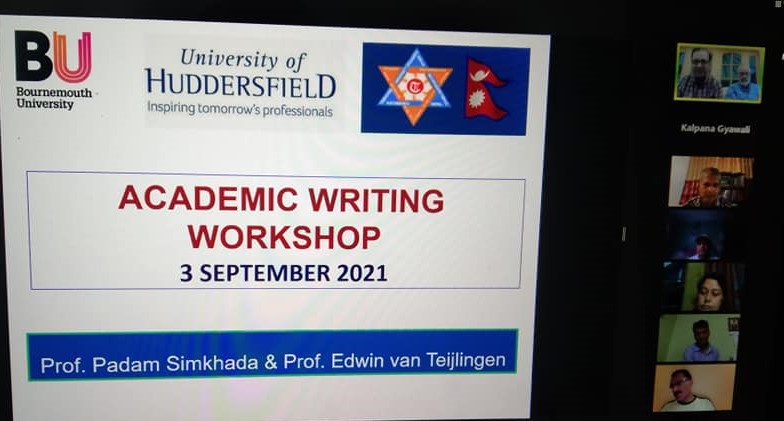 Yesterday we had the pleasure of running an Academic Writing Workshop for academics and postgraduate students in the Department of Health & Physical Education based at the Sanothimi campus of Tribhuvan University. Tribhuvan University is the oldest and largest university of Nepal. We base these training session on our various publications on academic publishing, [1-14] and we used the opportunity to advertise our forthcoming textbook on the matter [15].
Yesterday we had the pleasure of running an Academic Writing Workshop for academics and postgraduate students in the Department of Health & Physical Education based at the Sanothimi campus of Tribhuvan University. Tribhuvan University is the oldest and largest university of Nepal. We base these training session on our various publications on academic publishing, [1-14] and we used the opportunity to advertise our forthcoming textbook on the matter [15].
Prof. Padam Simkhada, Professor of Global Health and Associate Dean International at the School of Human and Health Sciences at the University of Huddersfield and FHSS Visiting Professor.
&
Prof. Edwin van Teijlingen, Centre for Midwifery, Maternal & Perinatal Health (CMMPH)
References

- Simkhada, P., van Teijlingen E., Hundley, V., Simkhada, BD. (2013) Writing an Abstract for a Scientific Conference, Kathmandu Univ Med J 11(3): 262-65. http://www.kumj.com.np/issue/43/262-265.pdf
- van Teijlingen, E, Hundley, V. (2002) Getting your paper to the right journal: a case study of an academic paper, J Advanced Nurs 37(6): 506-11.
- Pitchforth, E, Porter M, Teijlingen van E, Keenan Forrest, K. (2005) Writing up & presenting qualitative research in family planning & reproductive health care, J Fam Plann Reprod Health Care 31(2): 132-135.
- van Teijlingen, E, Simkhada, PP, Rizyal A (2012) Submitting a paper to an academic peer-reviewed journal, where to start? (Guest Editorial) Health Renaissance 10(1): 1-4.
- van Teijlingen, E, Simkhada. PP, Simkhada, B, Ireland J. (2012) The long & winding road to publication, Nepal J Epidemiol 2(4): 213-215 http://nepjol.info/index.php/NJE/article/view/7093/6388
- Hundley, V, van Teijlingen, E, SimkhadP (2013) Academic authorship: who, why and in what order? Health Renaissance 11(2):98-101 www.healthrenaissance.org.np/uploads/Download/vol-11-2/Page_99_101_Editorial.pdf
- Simkhada P, van Teijlingen E, Hundley V. (2013) Writing an academic paper for publication, Health Renaissance 11(1):1-5. www.healthrenaissance.org.np/uploads/Pp_1_5_Guest_Editorial.pdf
- van Teijlingen, E., Ireland, J., Hundley, V., Simkhada, P., Sathian, B. (2014) Finding the right title for your article: Advice for academic authors, Nepal J Epidemiol 4(1): 344-347.
- van Teijlingen E., Hundley, V., Bick, D. (2014) Who should be an author on your academic paper? Midwifery 30: 385-386.
- Hall, J., Hundley, V., van Teijlingen, E. (2015) The journal editor: friend or foe? Women & Birth 28(2): e26-e29.
- Sathian, B., Simkhada, P., van Teijlingen, E., Roy, B, Banerjee, I. (2016) Grant writing for innovative medical research: Time to rethink. Med Sci 4(3):332-33.
- Adhikari, S. D., van Teijlingen, E. R., Regmi, P. R., Mahato, P., Simkhada, B., & Simkhada, P. P. (2020). The Presentation of Academic Self in The Digital Age: The Role of Electronic Databases. International J Soc Sci Management, 7(1), 38-41. https://doi.org/10.3126/ijssm.v7i1.27405
- Pradhan, AK, van Teijlingen, ER. (2017) Predatory publishing: a great concern for authors, Med Sci 5(4): 43.
- van Teijlingen, E (2004), Why I can’t get any academic writing done, Medical Sociol News 30(3): 62-63. britsoc.co.uk/media/26334/MSN_Nov_2004.pd
- Wasti, S.P., van Teijlingen, E., Simkhada, P., Hundley, V. with Shreesh, K. Writing and Publishing Academic Work, Kathmandu, Nepal: Himal Books


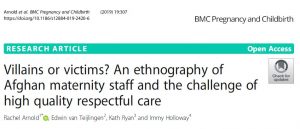

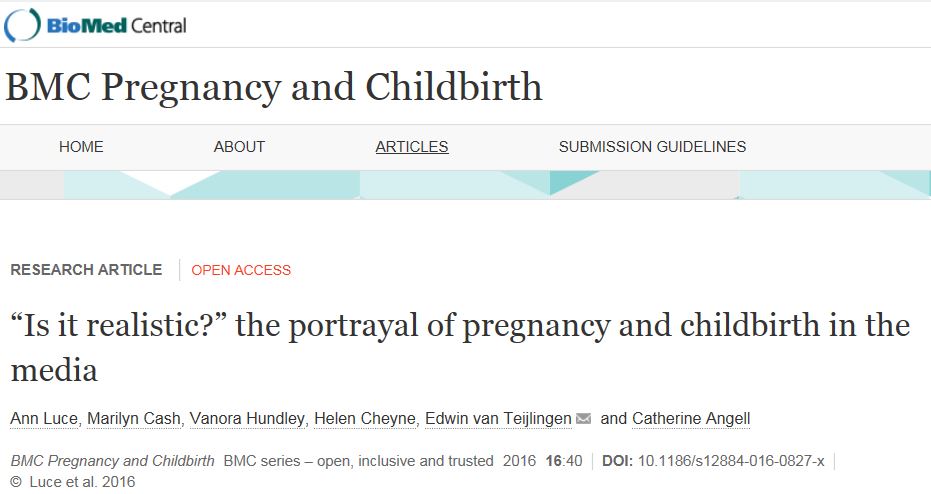


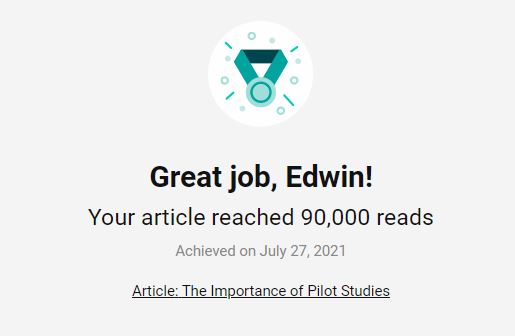


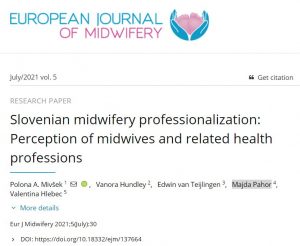

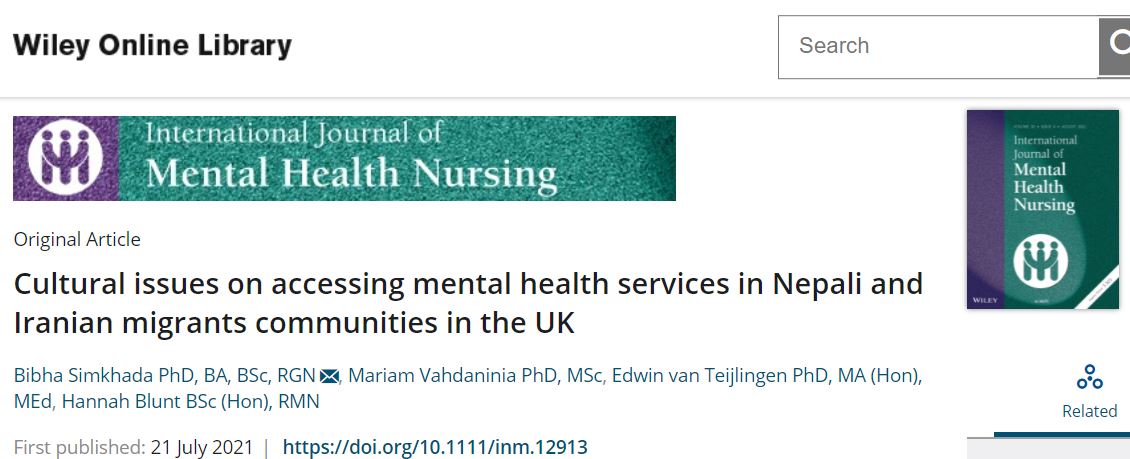



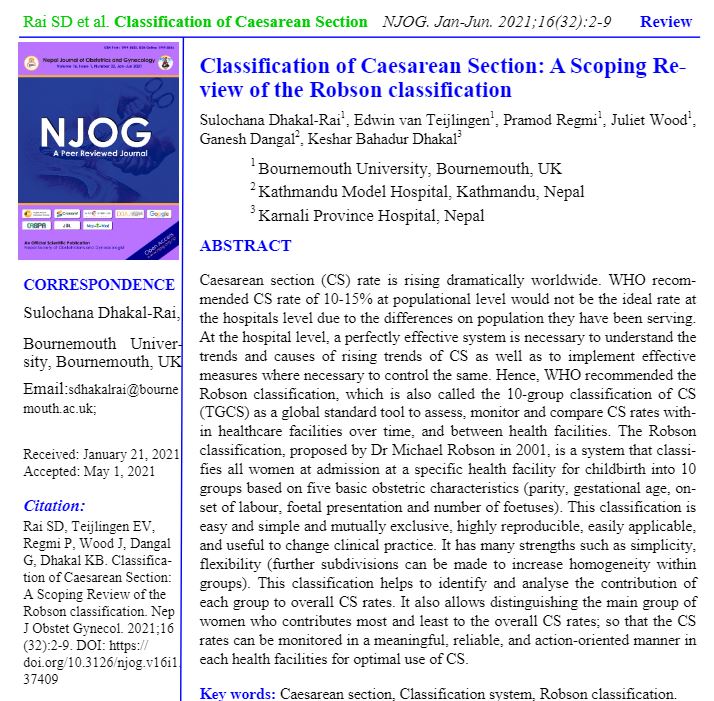
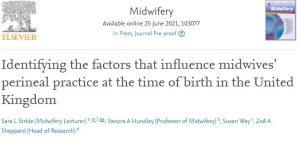
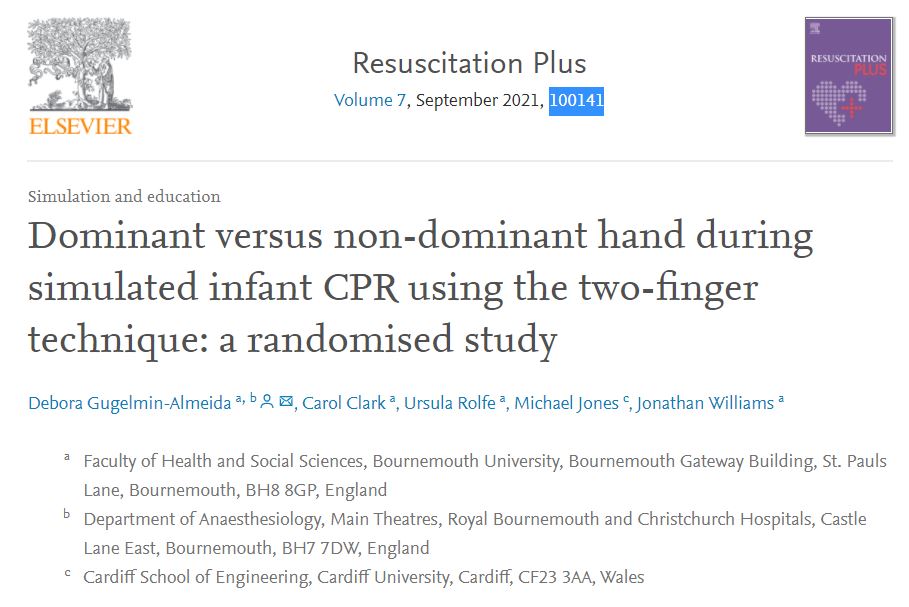

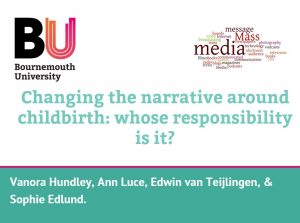

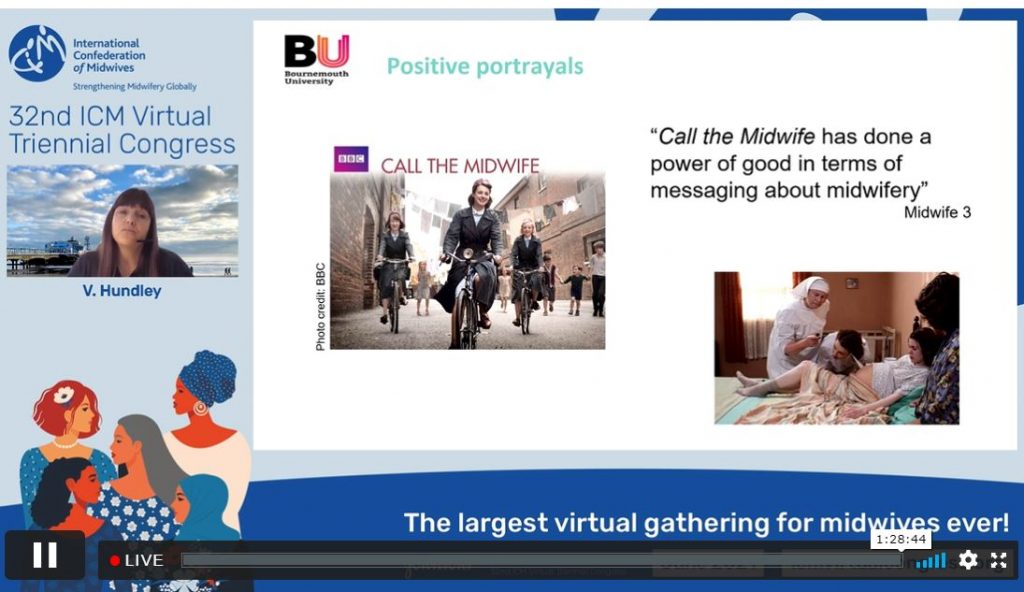
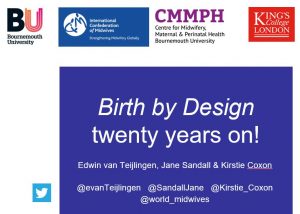
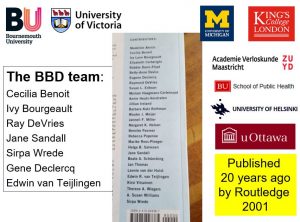
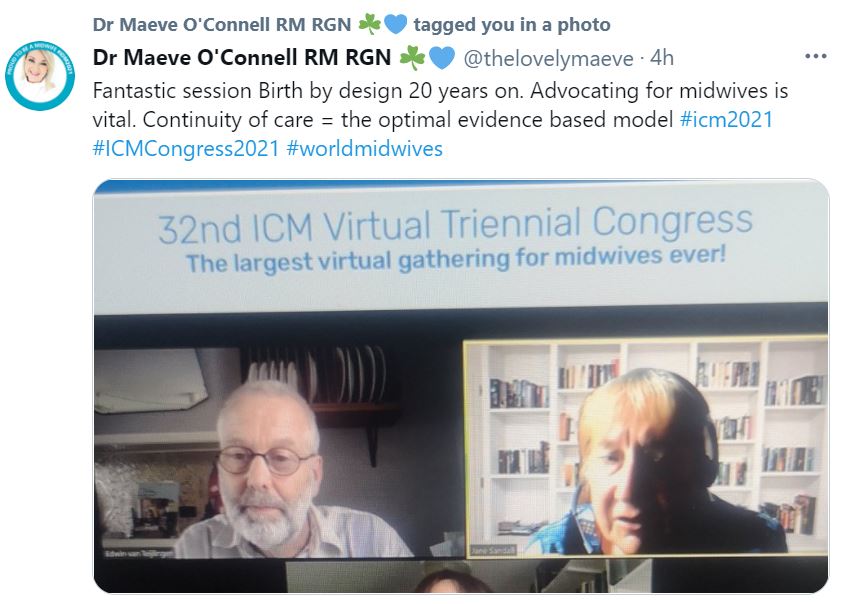











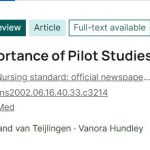 Paper with 160,000 reads
Paper with 160,000 reads The Month in Research: April 2024
The Month in Research: April 2024 BU Professor has been invited to a series of plenary and invited lectures.
BU Professor has been invited to a series of plenary and invited lectures. Research reaching non-academic audiences
Research reaching non-academic audiences April’s Café Scientifique – Should we help machines understand and respond to our emotions?
April’s Café Scientifique – Should we help machines understand and respond to our emotions? Apply for up to £1,000 to deliver an event and take part in a national festival of public engagement with research
Apply for up to £1,000 to deliver an event and take part in a national festival of public engagement with research MSCA Postdoctoral Fellowships 2024
MSCA Postdoctoral Fellowships 2024 Horizon Europe News – December 2023
Horizon Europe News – December 2023